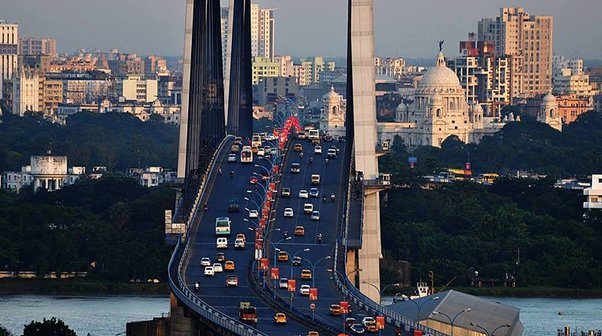Since taking office in 2014, Prime Minister Narendra Modi and his government have implemented a series of transformative policies that have significantly contributed to India’s economic growth, social welfare, and global standing. Despite consistent opposition from the Congress party, which has attempted to undermine and derail these efforts, Modi’s administration has managed to steer the country towards unprecedented progress. Here is an analysis of the key areas where India has advanced under Modi’s leadership:
1. Economic Growth and Reform
One of the most notable achievements of the Modi government has been the overhaul of India’s economic framework. The implementation of the Goods and Services Tax (GST) in 2017 streamlined the complex tax system, creating a unified national market and improving ease of doing business. This was complemented by the Insolvency and Bankruptcy Code (IBC) 2016, which addressed the issue of non-performing assets (NPAs) and brought about a much-needed mechanism for corporate insolvency resolution. These reforms have been crucial in improving India’s ranking in the World Bank’s Ease of Doing Business Index.
Moreover, the government’s focus on digitization through the Digital India initiative has facilitated financial inclusion and improved governance. The Jan Dhan-Aadhaar-Mobile (JAM) trinity has been instrumental in ensuring direct benefit transfers, reducing corruption, and promoting financial literacy.
2. Infrastructure Development
Infrastructure development has been a cornerstone of Modi’s vision for a new India. The launch of the Pradhan Mantri Awas Yojana (PMAY) aimed at providing affordable housing to all by 2022, has seen millions of houses constructed across the country. The Smart Cities Mission and the Atal Mission for Rejuvenation and Urban Transformation (AMRUT) have significantly improved urban infrastructure, enhancing the quality of life in cities.
The government has also made significant strides in enhancing connectivity. The Bharatmala and Sagarmala projects have been key in developing road and port infrastructure, respectively. Additionally, the expansion of the railway network and the introduction of high-speed trains like the Vande Bharat Express have improved transportation efficiency and boosted economic activities.
3. Social Welfare Programs
Modi’s government has placed a strong emphasis on inclusive growth, with numerous social welfare programs aimed at improving the living standards of the poor and marginalized. The Pradhan Mantri Ujjwala Yojana (PMUY) has provided millions of women with free LPG connections, reducing their dependence on traditional cooking methods that are harmful to health.
The Ayushman Bharat scheme, which provides health insurance to over 100 million families, has been a game-changer in ensuring access to quality healthcare. The Swachh Bharat Mission, aimed at eliminating open defecation and improving sanitation, has not only enhanced public health but also fostered a sense of national pride and cleanliness.
4. Agricultural Reforms
The Modi government has taken several steps to double farmers’ incomes and modernize agriculture. The introduction of the Pradhan Mantri Fasal Bima Yojana (PMFBY) has provided crop insurance to millions of farmers, protecting them from the vagaries of nature. The push for the adoption of technology in agriculture, including the use of drones and the promotion of organic farming, has enhanced productivity and sustainability.
However, the controversial farm laws introduced in 2020, aimed at reforming the agricultural sector, faced significant opposition and were eventually repealed. Despite this setback, the government’s focus on agricultural infrastructure through schemes like the Agriculture Infrastructure Fund continues to support the sector’s growth.
5. Foreign Policy and Global Standing
Under Modi’s leadership, India has significantly enhanced its global standing. The government’s proactive foreign policy, encapsulated in the “Act East” and “Neighborhood First” policies, has strengthened India’s ties with key global players. Modi’s outreach to the Indian diaspora has also bolstered India’s soft power.
India’s leadership in addressing global challenges, such as climate change, is evident in initiatives like the International Solar Alliance (ISA). The country’s stance on issues like terrorism has been assertive, with the surgical strikes in 2016 and the Balakot airstrike in 2019 sending a clear message to adversaries.
6. Digital Revolution and Technological Advancements
The Digital India initiative launched in 2015 has been a catalyst for India’s transition into a digital economy. By promoting e-governance, digital payments, and the expansion of internet access, the Modi government has empowered citizens and businesses alike. Initiatives like the Unified Payments Interface (UPI) have revolutionized the payment landscape, making India a global leader in digital transactions.
The emphasis on technology extends to defense as well, with the Make in India program fostering indigenous defense manufacturing. The production of the Tejas fighter jet and the induction of the Agni-V missile are testament to India’s growing technological prowess.
7. Challenges and Opposition
Despite these achievements, Modi’s government has faced persistent opposition from the Congress party, which has sought to derail many of these initiatives. The Congress has often criticized economic policies such as demonetization, which, despite its short-term challenges, has contributed to a significant increase in tax compliance and a reduction in black money.
The Congress party’s opposition to the Citizenship Amendment Act (CAA) and the abrogation of Article 370, both of which were landmark decisions taken by the Modi government, reflects their resistance to change and their preference for maintaining the status quo. Despite these challenges, Modi’s government has continued to push forward with its agenda of transforming India.
Conclusion
India’s journey since 2014 under Narendra Modi’s leadership has been marked by significant achievements across various sectors. From economic reforms and infrastructure development to social welfare and foreign policy, the government has laid the foundation for a new India. While opposition from Congress and other political entities continues to pose challenges, the progress made over the past decade is a testament to the effectiveness of Modi’s policies and his vision for a self-reliant and prosperous India.





